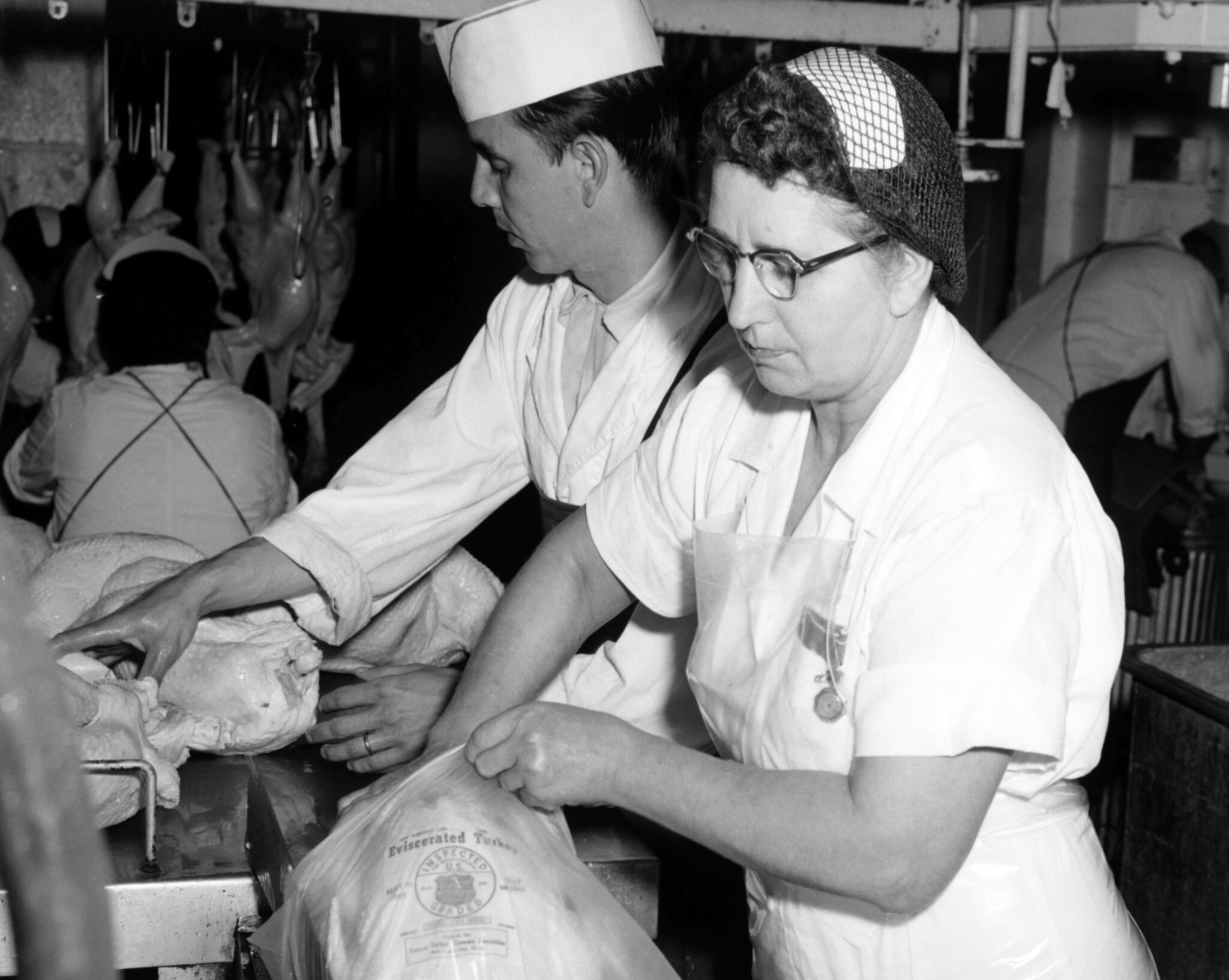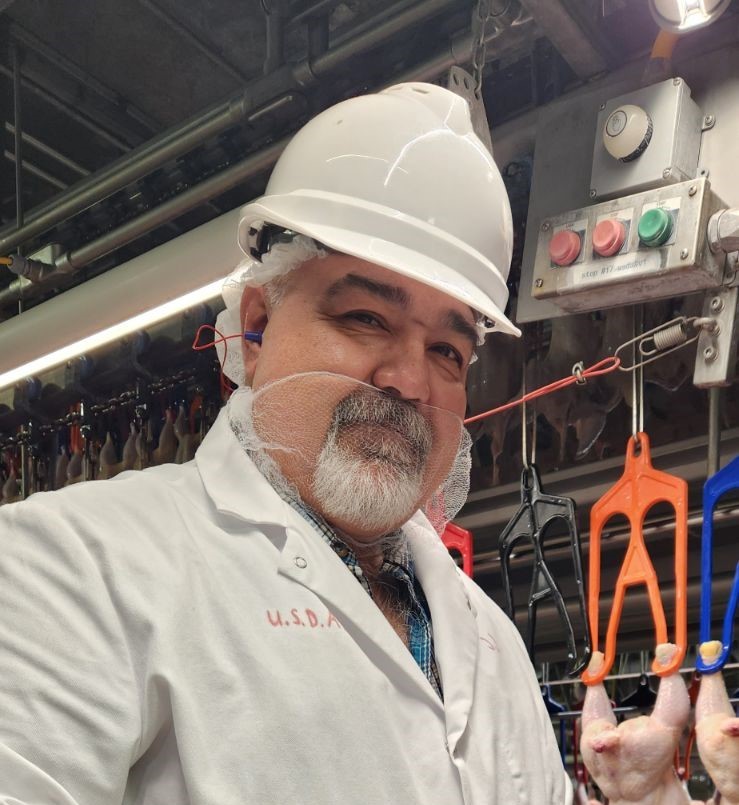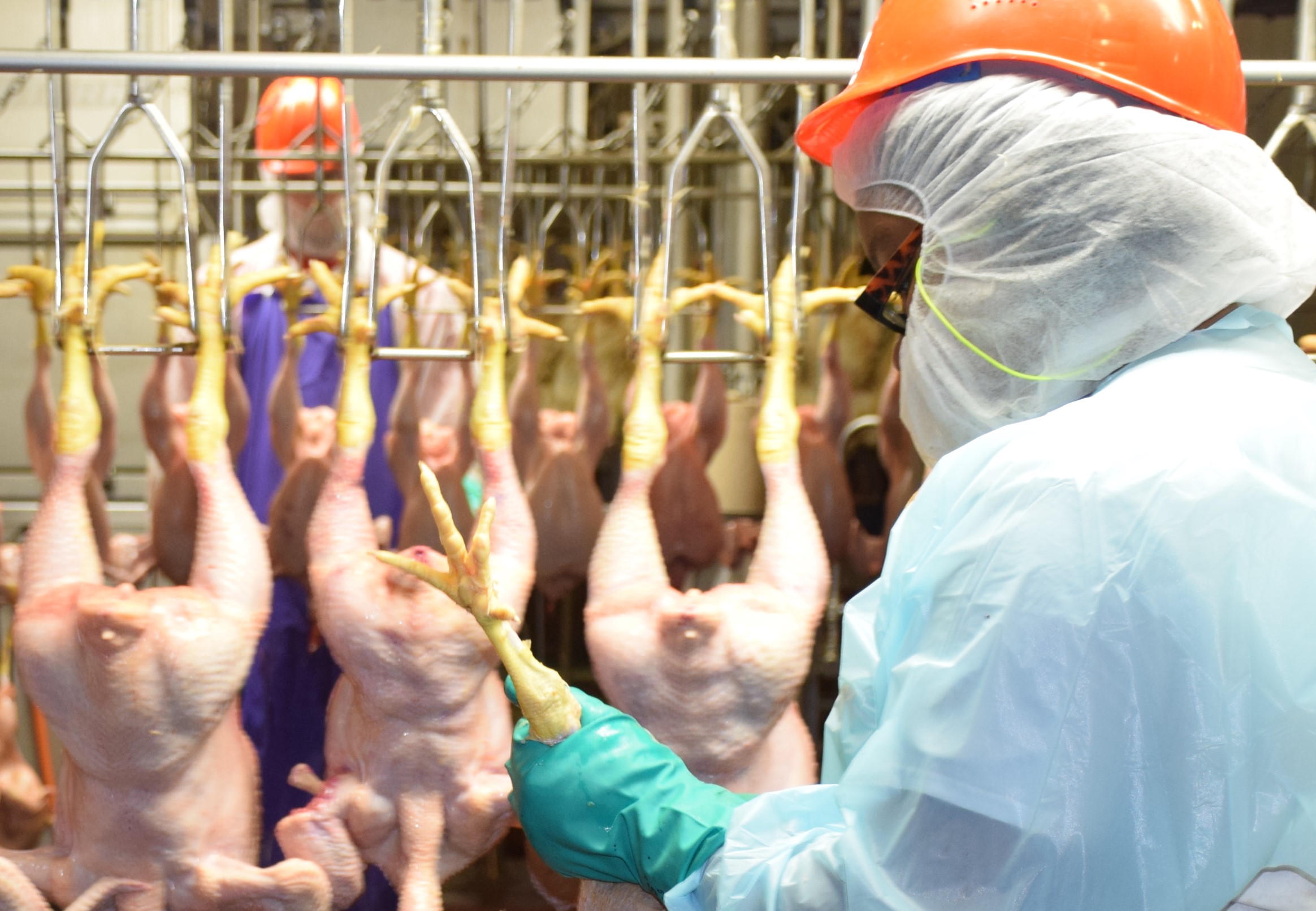
ARCHIVE: Collaborating in the Caribbean — Bringing Awareness About African Swine Fever
This story is an archived copy and may not reflect the most up to date information. Please visit the Employee section of our site for the latest employee information.
By Felicia Thompson, OPACE
African Swine Fever (ASF), a viral disease that humans are immune to, but which is highly contagious and deadly to both domestic and feral swine, has afforded FSIS an opportunity to collaborate with the USDA’s Animal and Plant Health Inspection Service (APHIS).
“ASF causes hemorrhagic fever and has high mortality rates in swine,” said Consumer Safety Inspector (CSI) Sara Symons, the sole FSIS inspector assigned to St. Croix, U.S. Virgin Islands. “Affected pigs can develop high fever, a cough, tremors and skin coloration changes, lose appetite and become depressed. ASF is easily transmissible in swine populations. When the disease becomes prevalent in an area, entire swine farms need to be depopulated causing economic losses to industry.”
Note: As of this writing, the USDA’s Agricultural Research Service has vaccine candidates that have shown to prevent and effectively protect both European and Asian bred swine against the current circulating Asian strain of the virus.
One Federally Regulated Establishment
The U.S. Virgin Islands has just over 87,000 residents. There are approximately 565 — mostly individual — animal farmers on the island of St. Croix. They and other animal farmers from neighboring islands have their livestock slaughtered at Establishment (Est.) 482M, the only federally regulated establishment in the U.S. Virgin Islands. This establishment falls under the purview of the Atlanta District, which also encompasses Puerto Rico, Florida, Georgia and South Carolina.
“Currently, farmers from St. Thomas [also part of the U.S. Virgin Islands] ship their livestock over by boat to Est. 482M for USDA-inspected slaughter, and their meat products are sold at retail in the territory’s grocery stores,” said Symons. “The concern is that ASF could find its way to the U.S. Virgin Islands through vectors, live or dead animals, human handlers and even pork products, and possibly decimate the local swine population.” It could also inject uncertainty into a country where pork is the main source of protein, lead to shortages of meat and an increase in prices for consumers.
Less than 400 miles separates the U.S. Virgin Islands from the island of Hispaniola (the Dominican Republic and Haiti); and Puerto Rico sits in the waters between Hispaniola and the Virgin Islands. According to the APHIS ASF webpage, as of Dec. 10, 2021, the virus has been found in the Dominican Republic, Haiti, China, Mongolia and Vietnam, as well as in parts of the European Union. It has not been found in the United States, according to APHIS.
Education is Key
Symons, APHIS veterinary medical officers and establishment employees have combined efforts to bring awareness of ASF. During a visit to U.S. Virgin Islands in December 2021, “APHIS staff worked with the Territory Agriculture Department and visited Est. 482M to observe swine carcasses being processed. Plant employees have been collecting swine blood samples for APHIS for months to track any occurrences of ASF. There have been none so far,” said Symons, a 23-year FSIS employee.
In addition to the visit to the establishment, APHIS, in conjunction with Symons, conducted two events on Dec. 15 to better educate farmers about ASF. One event took place at the plant where farmers, who came to have their animals slaughtered, received a handout about the virus, learned of its impact in the Dominican Republic, and ways to prevent its transmission to the U.S. Virgin Islands, Puerto Rico and the U.S. mainland. During the second event, a larger contingent that included Symons, APHIS employees, and the establishment’s management and staff met with farmers at a local restaurant later in the day. Farmers were able to learn procedures — quarantine new animals, perform sanitary measures like foot baths, or apply booties to trotters — that could help control ASF should an outbreak occur. At both events, Symons answered questions about sanitation measures that are needed during slaughter and provided information about the steps needed to open new slaughter establishments and APHIS distributed educational materials.
Although FSIS and APHIS have differing responsibilities and jurisdictions, the two sister USDA agencies can and do cooperate to help each other achieve their goals. To Symons, a CSI is an ambassador of FSIS and must seize opportunities to partner where she can and to educate others.
“As a CSI, I am responsible for ensuring the establishment where I am assigned follows all applicable federal regulations for the slaughter and production of USDA inspected meat products. This ensures that end products are wholesome and unadulterated,” said Symons. “I have direct contact with the swine farmers when they deliver their animals for slaughter, and I help keep them informed of harmful diseases that can impact them, their communities or their livestock.”

Team members show literature about African swine fever that they distribute to swine farmers. See other educational literature the team has used: Know How ASF Spreads and You Can Stop ASF Spread. Pictured, front row, from left: Est. 482M Director Curleen Rogers and Anthony Brown, a butcher at the U.S. Virgin Islands Department of Agriculture. Pictured, back row, standing, from left: APHIS VMO Dr. Kim Hencken; APHIS Animal Health Technician Allie Hobbs; Symons; U.S. Virgin Islands Department of Agriculture Office Manager Ayanna Simon; and APHIS Veterinary Medical Officer Dr. Tom Scott. Photo by a plant employee.



